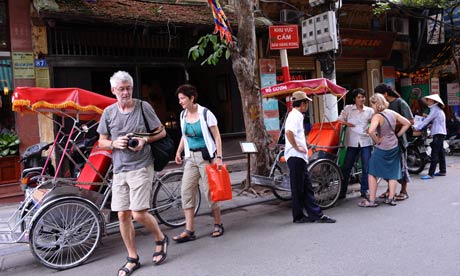The most visible form of slum tourism is likely to be tours to impoverished areas by foreign holidaymakers. They stand out and often fit the stereotypical picture people would have of slum tourists. However, what about aid workers or researchers? These may not always be seen as typical tourists as they are not on holiday for pleasure only. However, from personal experience I can say that doing research in slums can be an exciting and pleasurable experience. Interestingly, while people working in slum tourism said they viewed me as different from the average tourist, this did not stop some from calling me a tourist. Colleagues with whom I talked about these issues mentioned they had similar experiences. I would thus say that the vast majority of slum tourism researchers are indeed slum tourists as well.
To a certain extent, a similar perspective is taken by Kent Annan with regards to aid workers. He notes they too may be viewed as “poverty tourists”. However, he appears to view the label “poverty tourist” as negative. In his post he discusses his own ethical difficulties with doing aid work in poverty stricken areas and how he tries to steer clear of doing “poverty tourism”. He does this by aiming to treat people with dignity and asking himself the hard questions, trying to have the visits make a difference at how he lives at home and letting them be part of a long-term commitment to finding effective ways to help.
What I find interesting about his discussion is that it displays similarities between aid workers and holidaymakers that visit the slums. The arguments that are given to prevent aid work from becoming seen as “poverty tourism” are remarkably similar to the potential benefits of poverty and slum tourism. Of course not all holidaymakers will let their visits have such profound impacts on their lives, but for some this may be the case.
While certainly not an academic study, to me such anecdotal evidence further strengthens my idea that the vast majority of aid workers and researchers are indeed slum tourists as well. This may be contentious and one can disagree on this matter. However, after reading about the experiences of Kent Annan, it would seem that visits to impoverished areas certainly can impact and change lives of tourists and aid workers in similar ways.

.JPG)
